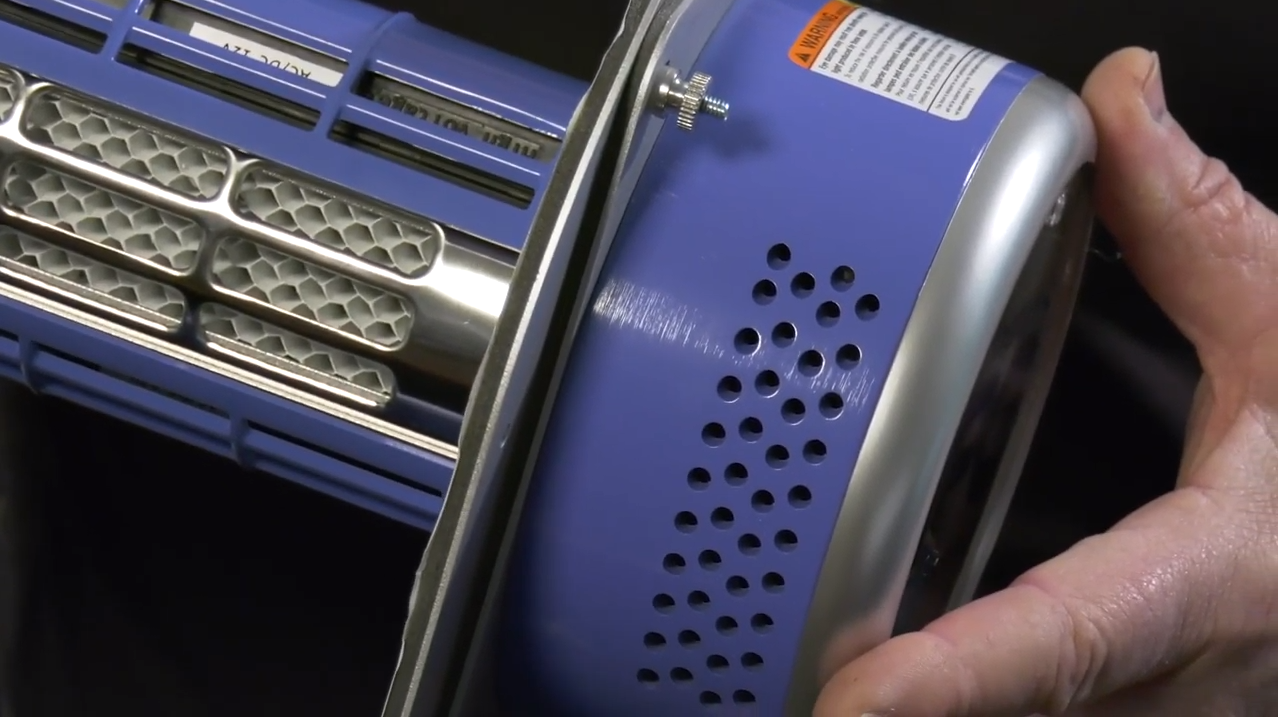
Are you concerned about the quality of air in your home? Do you have questions about how to maintain or improve indoor air quality? Unsure whether you need to hire a professional to help you with this? Below, we answer several commonly asked questions about indoor air quality, as well as hiring and working with a professional service provider.
Q: What is the difference between purification and filtration?
A: Air purification consists of actually cleaning, sterilizing and/or disinfecting the air using ionization, UV light, or ozone to eliminate harmful bacteria and particles as small as 0.01 microns from the air. Filtration, on the other hand, simply traps particles in a system of fibrous materials and typically does not remove particles as small as those that purification systems remove.
Q: What should I do if I suspect that my home contains asbestos products?
A: Asbestos was used in many homes built before the 1970s, and it’s often found around steam pipes, boilers, and furnace ducts. It can also be used in vinyl flooring, roofing and siding. A common misconception is that the presence of any asbestos poses a health hazard. In fact, the danger of asbestos only arises when it is tampered with or deteriorates, which releases asbestos fibers into the air.
Airborne asbestos fibers are known to increase the risk of lung cancer and cause scarring of the lungs. If you suspect your home contains asbestos and you are unsure of the condition of the material, the best thing to do is leave it alone and call an indoor air quality professional who can assess the situation and provide removal services if necessary. If the asbestos product is still in good condition, the safest way to maintain indoor air quality is to leave it as is.
Q: How long does a typical indoor air quality project take to complete?
A: This depends on the nature of your project. An infiltrometer test only takes about an hour, while a complete HVAC system overhaul can take several weeks. Expect simpler procedures like air conditioner installation or duct cleaning and sealing to take no more than two or three days. Add to this a few weeks of additional product selection and shipping time.
Q: How often should I have my air ducts inspected and cleaned? How do I know it’s time for a new HVAC unit entirely?
A: Depending on the environment you live in, your ducts should be inspected every two to three years and cleaned every five to seven years. The older the home and the more pets and smokers present, the more frequently the ducts should be cleaned. Most HVAC units begin losing efficient functionality after 10 to 12 years. Your contractor can assess the condition and efficiency of your unit and recommend repairs or upgrades.
Q: Will my indoor air quality contractor be able to help me choose materials and obtain permits?
A: Qualified, licensed indoor air quality contractors will definitely offer expertise in the decision-making process, steering you clear of manufacturers that may not fit your budget or quality criteria and lending their advice on various features and types of air quality systems. They will also know the ins and outs of obtaining building permits.
Q: How much can I expect to spend on an indoor air quality project?
A: Once again, this varies widely according to the nature of your project. An infiltrometer test is often complimentary if you purchase other services from the contractor. A duct cleaning can cost between $100 to $1,000, depending on the size of the area and the kind of equipment used. An air conditioning unit typically costs between $1,500 to $5,000, depending on the number of enhanced features and the size of the home area.
A new furnace typically costs $2,000 to $5,000, once again depending on the energy efficiency, features and size of the home. A central humidifier/dehumidifier is typically $100 to $300, while filtration systems are $150 to $500. Purification systems range between $500 to $2,500 or more, depending on the type of purification and number of features.
Q: What is a typical project payment schedule?
A: Most contracting firms will require 30 to 50% up front at the time the contract is signed, an additional 30 to 40% upon delivery of the materials and the balance upon completion.
Q: What is a typical warranty for HVAC units and contracting services?
A: Many contractors guarantee their work for one to five years after completion of an installation. You can expect most heating units to come with a warranty of up to 20 years, while air conditioning units typically have shorter 10-year warranties. Warranties on purification and humidification or dehumidification systems vary widely.
Q: Why choose a Diamond Certified indoor air quality contractor?
A: Diamond Certified helps you choose an indoor air quality contractor with confidence by offering a list of top rated local companies that have passed the country’s most in-depth rating process. Only air quality contractors rated Highest in Quality and Helpful Expertise® earn the prestigious Diamond Certified award. Most companies can’t pass the ratings. American Ratings Corporation also monitors every Diamond Certified company with ongoing research and ratings. And your purchase is backed by the Diamond Certified Performance Guarantee, so you’ll feel confident choosing a Diamond Certified indoor air quality contractor.
